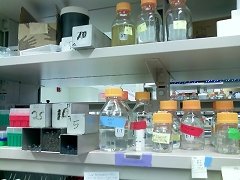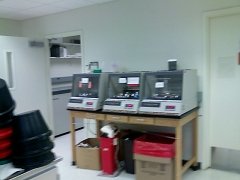Everything posted by ecoli
-
What is your favorite tv series at the moment?
the first episode was slow enough that I never continued. I'm hearing good things about the latest season though.
-
Has the Republican party lost its collective mind?
http://www.youtube.com/watch?v=ZuG1vyQ1mUQ
-
Has the Republican party lost its collective mind?
From http://www.motherjones.com/politics/2012/05/allen-quist-michele-bachmann-campaign: "and went undercover at an adult bookstore and a gay bathhouse in an effort to prove to a local newspaper reporter that they had become a "haven for anal intercourse." " sure... Want to know how I know this guy is secretly gay?
-
name the musical instrument
they're using a drum machine/ synthesizer. It doesn't necessarily have to be an actual instrument.
-
Recommended Philosophical Reading
I think I was reading the first version. Could explain the differences in opinion about his writing style.
-
Recommended Philosophical Reading
Isn't that the version of an earlier book that he re-wrote because the original wasn't well received? (because it was too dry?) Or am I thinking of a different one.
-
Recommended Philosophical Reading
Some things currently on my desk/ recently finished: Philosophy of David Hume by Norman Kemp Smith - so far seems like a good overview and well written. (original David Hume is pretty dry, if you ask me) Introducing Empiricism - A neat book that goes over the major players and concepts. uses cartoons and graphics, so also a fun read and great if you like to visualize concepts. Logic: a Very Short Introduction - This was a great little book that goes into philosophical and mathematical concepts. Especially handy as a reference because it's not too long. - an audio book lecture about Western and some Eastern ethics. Wasn't a big fan and wouldn't recommend it. I got it for free. Machiavelli - The Prince.a classic I've been meaning to get to. What Would Socrates Do - an audio lecture on western and some eastern ethics. Wasn't very good and I wouldn't recommend it. but it was free for me. Also some original works by Kant, Hume and Locke, the titles of which slip my mind. Essays concerning rationality by Eliezer Yudkowski (free material, on Bayesianism, etc) Along similar lines, and from the same author, The LessWrong "sequences"
-
what's a good programming language to learn?
I currently work in a department that uses zero computation, aside from the odd statistical test. I'll poke around, however. I haven't read an answer here that I would characterize as "wrong" yet.
-
what's a good programming language to learn?
Biological systems for sure. Probably infectious disease transmission and/or evolution. Also I'm interested in social science research and economics. academic I have no idea, I'm a complete newb. would you recommend a class then? That could be possible
-
what's a good programming language to learn?
I take it that I'm not going to get a consensus on this
-
what's a good programming language to learn?
I should explain that I don't have any modeling project in mind, per se. I just want to learn something that would be adaptable to future use. I've heard of C and python, and got a recommendation of Java from a friend of mine... What's R, klaynos?
-
what's a good programming language to learn?
Eventually, I want to be able to do some computationally-heavy modeling work, which obviously requires programming knowledge. Is there a specific language that would be good for this type of interest. Where can a newb start learning about building the tools to develop skills to develop stochastic-type models? Thanks!
-
Suggestions for Experiments
how about electrolysis of water demonstration to show how to produce hydrogen gas (relevant to hydrogen fuel technology). and/or - making your own soap using a soponification reaction.
-
Pictures of your lab...
no, compressed CO2 from a tank.
-
Pictures of your lab...
I just assume they suffocate first... doesn't cutting off O2 to the brain causes a sort of mild hallucinogenic affect?
-
Pictures of your lab...
We do it with CO2 chambers, though I've heard of some labs that break their spines by pulling on their tails a specific way. I think the latter has to many chances for error, and unnecessary pain.
-
Pictures of your lab...
oh yeah, I have a clean room for mouse experiments as well (no pictures though).
-
Pictures of your lab...
-
Liberals Proving Intelligence-Liberalism Connection (like conservatives proving god)
I think that, according to the classical conservative ideals (like Ron Paul) conservatives aren't unflexible, they just think that traditional thinking is the perfect way to run things today... you don't need extra bureaucracy to get the job down.
-
Immunity by incompatibility – hope in chiral life
You also have to consider how this would affect our relationships to mutualistic symbiotic relationships we have with many microorganisms. I don't think the future of immunity lies with the type of complete genetic engineering you're talking about.
-
Mrs Tilly
Mrs. Tilly likes broccoli but hates cauliflower
-
Mrs Tilly
Mrs. Tilly likes to be left unattended, but hates to be alone Mrs. Tilly likes brooks but hates streams Mrs. Tilly likes quizzes but hates tests Mrs. Tilly has a wallet but no money Mrs. Tilly is friends with Bill but not Ted
-
Cool Facts
very true... I taste awful. I'm a "he" btw, not an it.
-
The Official JOKES SECTION :)
- Do you have a new theory?
you should send an PM to dave or blike about this. - Do you have a new theory?
Important Information
We have placed cookies on your device to help make this website better. You can adjust your cookie settings, otherwise we'll assume you're okay to continue.


